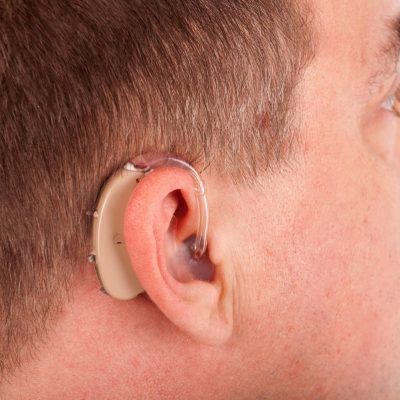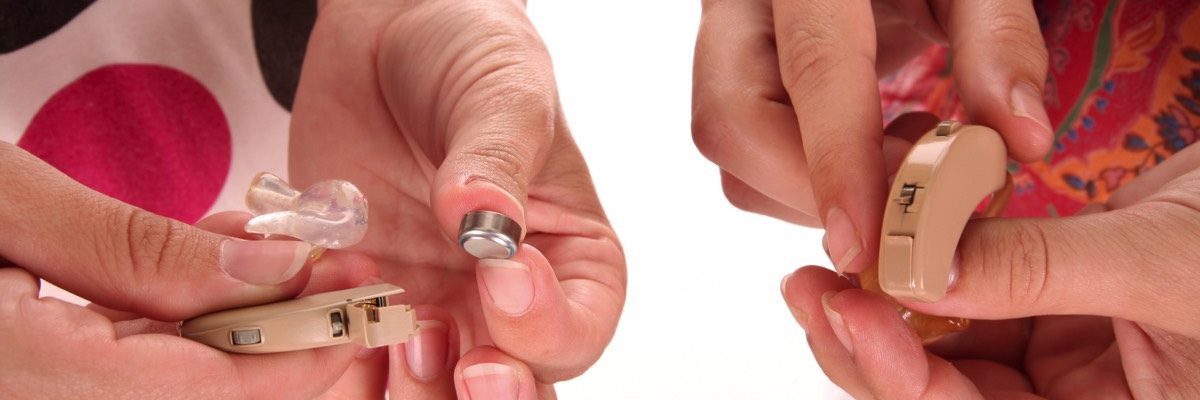Types and Consequences of
Hidden Hearing Loss
Hidden Hearing loss can occur if there is a problem at any point of the hearing pathway. An Ear, Nose and Throat specialist is the best person to see if there are concerns regarding the possible cause of a hearing loss.
Types of Hearing Loss
Conductive
Conductive hidden hearing loss is caused by a problem in the outer and/or middle ear. Common causes include:
- Wax Blockage
- Infection (i.e. “glue” ear)
- Perforated Ear Drum
- Otosclerosis – a hereditary condition where bone grows around the stapes bone of the middle ear so that it is unable to pass vibrations to the inner ear.
These conditions reduce the loudness of sound but, fortunately, do not affect its clarity. Medical treatment is often available but, if not possible, people usually find amplification using a hearing aid very beneficial.
Sensorineural
Sensorineural hearing loss is caused by a problem with the inner ear. Common causes include:
- Natural Ageing
- Excessive Noise Exposure
- Diseases such as Meniere’s and meningitis
- Head Injury

It is also possible to haver Mixed Hearing Loss, which is caused by a mixture of both Conductive and Sensorineural hearing loss.
Effect of Age on Hearing
Hearing loss due to natural ageing is usually caused by gradual damage to tiny hair cells in the inner ear. These hairs usually pass sound vibrations through to our hearing nerve that then passes messages onto the brain. Over time, these hairs can collapse, resulting in permanent hearing loss.
High-pitched sounds are usually the first to go, leading to difficulty hearing and understanding speech from those around you. Sounds such as p, b, d, k, s, f, t, z and ch fall within the damaged high-pitch hearing range. These sounds are essential for understanding speech; without them, everything just sounds mumbled.
This issue is made worse by the ears’ retained ability to hear low-frequency background noises such as cars, crowds and air conditioning units. This acts as interference, making the speech of the person next to you even harder to understand. Thankfully, we have a broad range of solutions available to treat your specific hearing loss.
Effect of Noise on Hearing
Noise-related hearing loss is a major problem within the industrial sector throughout Australia. Imagine spending 40 or more years of your career operating a pneumatic drill or working around loud machinery. It’s bound to have an effect.
Noise exposure of this level causes permanent hearing loss by killing the tiny hairs within the ear. Although you can still hear, clarity of speech becomes poor, causing everything to sound muffled and distorted. This makes simple conversations in areas with background noise extremely difficult.
Everyone’s hearing sensitivity is different, so it’s impossible to define an exact level of hearing that causes damage. However, any level of excessive noise is going to speed up the damage on your hearing. Problems that would usually occur at 50 years of age could occur 20 to 30 years earlier, depending on your environment.
At Hearing Matters, we have helped many people suffering from noise-related hearing loss due to loud workplace environments – including many successful compensation claims. This allows us to provide premium hearing devices that can restore the hearing you have lost, giving you back the freedom of communication.

Consequences of Hearing Loss
Hearing loss has three key consequences that lead to a range of disadvantages. Thanks to modern technology, we can go a long way to combatting each of these consequences to help restore your hearing.
Take a look at the key consequences of hearing loss below.
Impaired ability to hear sound (i.e. reduced “frequency selectivity”)
The most common consequence of hearing loss is the inability to hear the full range of pitches that make up the sounds around you. Many people can hear the low pitch sounds of crowds, air conditioning units and other background noises, but struggle to pick out the higher pitch notes that make speech clear and easy to understand. With our high-quality hearing devices, we can help to block out all the unwanted sounds while making the speech of friends and family loud and clear.
Inability to perceive the different loudness and timing of sounds at each ear
Another serious but slightly less common consequence of hearing loss is the inability to recognise when sounds reach one ear slightly before the other – and at slightly different volumes. This is something that happens throughout our lives, but over time our brain can lose the ability to bring these sounds into alignment. This can make it difficult to determine where speech is coming from, and background noise can also become hard to ignore. With a range of state-of-the-art devices available, we’re sure to be able to find a solution that helps to align your hearing again.
Inability of the brain to turn sound into meaning
When people talk around you, you may find it difficult to hear all the speech clearly. This can cause a deficiency of your Central Auditory Processing, where the brain literally forgets the meaning of speech, making it difficult to understand simple conversations. Sufferers of hearing loss often need to concentrate a lot harder when talking to friends and family, causing something known as ‘listening fatigue’. With our high-quality hearing devices, we can help to make speech clear again so that you can retrain your brain to understand the speech around you.